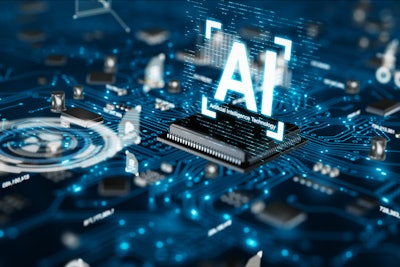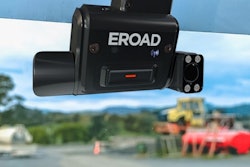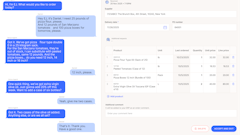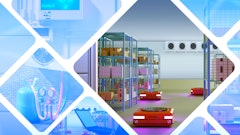
The trucking industry has grappled with a persistent turnover crisis, often attributed to factors like limited career growth, demanding schedules, and inconsistent pay. Yet, beneath these well-known challenges lies a less discussed but equally significant contributor: the hostile litigious environment. This pervasive issue, frequently overshadowed by more visible concerns, has a profound impact on truckers, exacerbating the difficulties faced by fleets and disrupting the delicate balance of the food and beverage supply chain.
The trucking industry is poised for a transformative shift. The integration of artificial intelligence (AI) technology offers not just a technological upgrade but a fundamental reevaluation of how truckers and insurance companies operate.
By providing objective data and real-time analytics, AI can significantly mitigate litigious disputes and streamline operations, turning challenges into opportunities for improved efficiency and fairness. This is particularly critical in food and beverage logistics, where timely delivery and accountability are essential to preserving the integrity of the supply chain.
Turning legal uncertainty into reduced litigation and enhanced fleet safety
States like Louisiana have reversed crucial tort reform legislation aimed at reducing insurance premiums and fostering a more equitable legal landscape for truckers. These reforms sought to alleviate the constant threat of litigation, providing drivers with some respite from costly and time-consuming legal battles.
However, the overturning of these policies has severe consequences: The fear of being entangled in protracted legal disputes is driving many truckers out of the profession, straining fleet resources and disrupting the supply chain. Particularly in the food and beverage sector, delays in transportation can cause significant economic losses.
For example, a dairy company delivering milk across the country faces regular delays due to bad weather and traffic. These delays not only affect their delivery times but also increase their exposure to accidents, leading to costly litigation.
By adopting AI-driven route optimization systems, the fleet could receive real-time updates on road and weather conditions, allowing them to reroute drivers away from high-risk areas. This technology could help the dairy company avoid accidents, minimize legal disputes, and ensure on-time deliveries, thereby enhancing the overall efficiency of its fleet.
AI-enabled dash cameras are another critical development in this space, offering fleets a way to capture unbiased evidence in the event of an accident. These cameras use AI to analyze driving behavior in real time, providing data points like speed, braking, and following distance. More importantly, they don’t just capture incidents—they provide ongoing coaching for drivers, issuing real-time alerts if distracted driving is detected.
This kind of real-time insight is particularly useful in food and beverage logistics, where both timing and driver safety are critical.
For instance, take a premium seafood distributor that experienced several incidents of cargo theft during deliveries. The company’s fleet manager could then decide to integrate AI-enabled security systems that not only track the truck’s location but also capture real-time footage. These systems reduce theft incidents by alerting the fleet manager when a truck deviates from its planned route, enabling quicker responses and minimizing losses. This capability's knock-on effect can reduce legal disputes related to stolen or compromised cargo and contribute to making a fleet more marketable, as the fleet's risk profile gradually improves.
Turning surveillance to safety by enhancing driver retention and fleet performance
Another ripple effect of this technology is that AI-powered cameras offer a unique opportunity to transition from punitive measures to positive reinforcement and gamification, significantly enhancing driver retention and fleet safety.
By recognizing and rewarding safe driving behaviors, such as adherence to traffic laws and defensive driving techniques, carriers can create a system where drivers earn rewards, bonuses, or public recognition, fostering a culture of excellence.
AI can track metrics such as safe driving hours and fuel efficiency. This can transform efficient food and beverage supply chain management into points, badges, or rankings on a leaderboard, creating a competitive and engaging environment that encourages continued positive behavior. For example, fleets could implement monthly safety challenges where top-performing drivers receive bonuses or recognition, elevating their reputation and inspiring their peers to strive for improvement.
A beer distributor, for example, was facing rising workers’ compensation claims due to slips and falls during the unloading process. After installing AI-equipped cameras, they were able to monitor these incidents and make safety improvements, which led to a significant reduction in their workers’ comp claims. This technology not only reduced their insurance premiums but also enhanced safety protocols specific to beverage distribution, where heavy lifting and quick movements can often lead to injury.
By prioritizing positive reinforcement, AI-enabled dash cameras can evolve from perceived surveillance tools into supportive resources, encouraging driver adoption. This approach not only promotes safer driving practices but also leads to achieving better policy terms, reduced downtime, and fewer costly repairs.
Moreover, the data collected by these cameras provides valuable insights for developing tailored training programs and addressing specific areas for improvement, further enhancing driver performance and demonstrating the carrier's dedication to their professional growth and safety.
Future-proofing the food and beverage supply chain through AI-driven risk management
Insurtech companies are also leveraging AI to transform the underwriting process. Traditional insurers often rely on historical data to assess risk and set premiums. However, with AI, they can now use real-time data to better predict risk, assess driver behavior, and create more accurate insurance models.
This approach is already being piloted in fleets that handle sensitive, perishable goods, where on-time delivery and safety are paramount. Fleets that consistently demonstrate safe driving practices through AI-based tools can benefit from lower premiums, reducing costs across the board and ensuring smoother operations in the supply chain.
Incorporating AI technology into food and beverage logistics isn’t just about staying competitive—it’s about future-proofing the supply chain against the rising costs of litigation, insurance, and safety concerns. By adopting these tools, fleets can protect their drivers, reduce accidents, and ensure that their goods arrive fresh, safe, and on time.



















